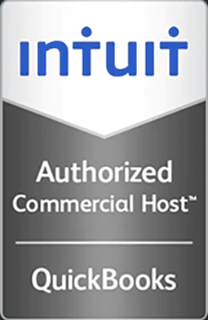Why Your Organization Should Choose Dedicated Exchange Hosting over Shared Exchange Hosting
A primary reason for an organization to explore hosted mail services is the desire to offload the cost of procuring and maintaining the mail server infrastructure. While a hosted service can deliver on this promise, it is important to understand the differences between a shared Exchange environment, and having a service hosted on a dedicated Exchange server, either virtual or physical.
In a shared environment, the service provider will utilize the security permissions in Exchange to allow a rudimentary set of features and a basic level of administrative control to the client. This allows for mailbox set up, very basic messaging functionality, calendar and scheduling features, the ability to add and delete mailboxes, and not much else. While a “mail 1.0” service like this will provide some communications functionality, it does so by sacrificing the myriad of productivity features that exist within the Microsoft Exchange Server suite, and that are only available with an on-site server, or a dedicated Exchange service. A shared service also denies control of the underlying OS to the client organization, preventing the installation of third party software or monitoring tools.
A dedicated Exchange service provides a complete server instance, with a dedicated server OS and full control of the entire MS Exchange suite. The organization is provided with every advantage of Exchange, without the cost and complexity of hardware, maintenance, staff, and upgrades. With a hosted dedicated Exchange server at your fingertips, your business can have the full functionality of a mail server without the high cost of ownership.
The foremost advantage of a dedicated Exchange service is the ability to interact with and manage Active Directory (AD). Taken a step further, with the addition of a Site-to-Site IPSec VPN, this type of service can be integrated with the onsite AD, making the customer network seamless. Of course this cannot be accomplished with a shared environment, leaving the customer with at least two systems that must be managed separately.
In a dedicated Exchange environment, administration is handled through standard snap-ins and tools, as if the server were local. With the integrated AD/Exchange environment user account creation, personnel details, and security profiles integrate to provide a flawless administrative environment. By choosing a provider with a dedicated Exchange server, companies can receive the benefits of both the cloud, and of the built in features of Microsoft’s domain architecture. Any additional software that is required to be run can be installed on the box, and run as usual. By locating the dedicated mail server in the cloud, it is possible to take advantage of the strengths inherent to a virtualized infrastructure without having to develop this environment in the datacenter.
Your dedicated solution should be fault-tolerant, giving you 100% uptime. The features that enable this are redundant Active Directory Controllers, server clustering, SAN storage with clustering, redundant network components, and redundant Internet connectivity. Your system should be in a private virtual LAN behind redundant firewalls. You should be protected by a daily application-consistent backup, ensuring you can restore system regardless of the fault.
With a dedicated Exchange environment, any business can fulfill its communication needs with a full suite of dedicated services, while avoiding the capital expense and operational costs of maintaining the messaging infrastructure. A dedicated server in a virtualized hosted environment is able to expand and grow as the business does, and only a dedicated Exchange server can be fully integrated with the existing Microsoft domain architecture. With a dedicated server, administration is quick and easy, as if the host were on site. When deciding on a hosted mail service for your organization, choosing a vendor with a dedicated Exchange offering is the best value at a competitive price.





